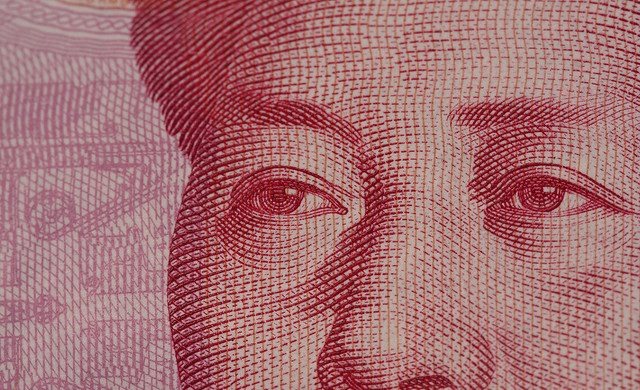Have you ever wondered what would happen if China decided to devalue it’s currency? Well, you don’t have to wonder any longer. Today the country’s central bank devalued its Yuan by 1.9% against the U.S. dollar – the most in two decades, and investors around the world headed for their cardiologists.

The move “was partly aimed at revving up the country’s slowing economy and sagging exports,” which it should do, to some extent. Companies that do business with mainland China are scurrying to assess the collateral. As Bill McQuacker of Henderson Global Investors noted, “What is good for growth in China is unfortunately bad for everybody else.”
The bigger the brand and the more business that foreign companies transact with and in China, the bigger the impact. The poster child for the day is Apple (NASDAQ:AAPL), which watched its share price drop by 5.2% to $113.49 on a volume in excess of 92 million shares. Others followed suit.
All other things being equal (which they are not nor will be), sellers of foreign product into China will experience a decline in revenue when the Yuan received in payment for goods and services are converted into, in this instance, U.S. currency. Whilst the cost of a product or service remains the same, the money with which it is purchased will have less value at the time of conversion. In effect, U.S. companies, and any other companies trading in U.S. dollars will lose two cents on every dollar versus what they would have made a day earlier.
From the Chinese perspective, there is no desire to see their own economy continue its slump that included an 8.3% decline in exports in July year-on-year. The reduced Yuan, in effect, reduces the cost of products made in and exported from China, making the Chinese product more competitive. It’s a one-two punch as China makes it easier for itself to trade internationally whilst its trading partners take it on the chin.
If we continue to use the Apple example – which almost everyone else is as well today – Apple’s ability to sell iPhones in China becomes a bit more difficult, but, for its Chinese competitors, the playing field has become a bit more level.
Economist Sung Won Sohn commented that, “This move won’t solve some of the pressing problems China faces. There is too much excess capacity, especially in basic industries. Chinese banks are loaded with a lot of problem loans. The gyration in the stock market won’t go away.”
If you think about it, that is probably what worries most investors the most. It’s not the 1.9% today. It’s what today’s action might foreshadow. U.S. Senator Rob Portman (R-OH) in as much said so when he said that, “Today’s news that China has yet again lowered the value of its currency is another harsh reminder that we cannot afford to sit idly by as China refuses to play by the rules.”
Don’t be surprised at continuing volatility as the world senses the potential impact of the Chinese economic bubble bursting. At this point, we can be sure of one thing only. The Chinese cannot and will not let their economy collapse. Today’s move may be one small step for China on a journey of a thousand miles.

 Hot Features
Hot Features













